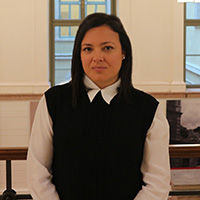Re-Examining Income and Fertility within Couples: Evidence from Italy
2:30pm -3:30pm
Tuesday, November 14th, 2023
Social Science Centre 5220
A lecture by Agnese Vitali

Abstract
This contribution studies the association between economic characteristics and short-term fertility intentions, i.e., the best predictor for realized fertility, among Italian women and men in heterosexual couples. Alongside usual measures of employment status for both women and men, we consider –for the first time for Italy– the couples’ absolute and relative incomes, measured, respectively, by the total disposable income and the contribution of each partner to the total couple’s income. In this way, we are able to disentangle the role of overall economic resources from the role of partners’ gender-role specialization and draw conclusions on the association between incomes and fertility intentions in the Italian context. We combine two data sources provided by the Italian National Institute of Statistics (Istat) – namely, the Income Statistical Register (BDR-I) and the Family, Social Subjects and life cycle (FSS) survey. Results show that individuals living in higher-income households –especially women– are more likely to intend becoming a parent and having an additional child, compared to their lower-income counterparts. Also, we find that respondents in couples where both partners are employed are more likely to intend having a first child in the short term. Finally, net of the couple’s total disposable income, it does not matter for fertility intentions whether the income is solely earned by the man, the woman, or whether both partners contribute to the household income. These findings are novel for Italy, and challenge classical micro-level assumptions based on the “New Home Economics” approach as well as assumption based on traditional gender norms.

